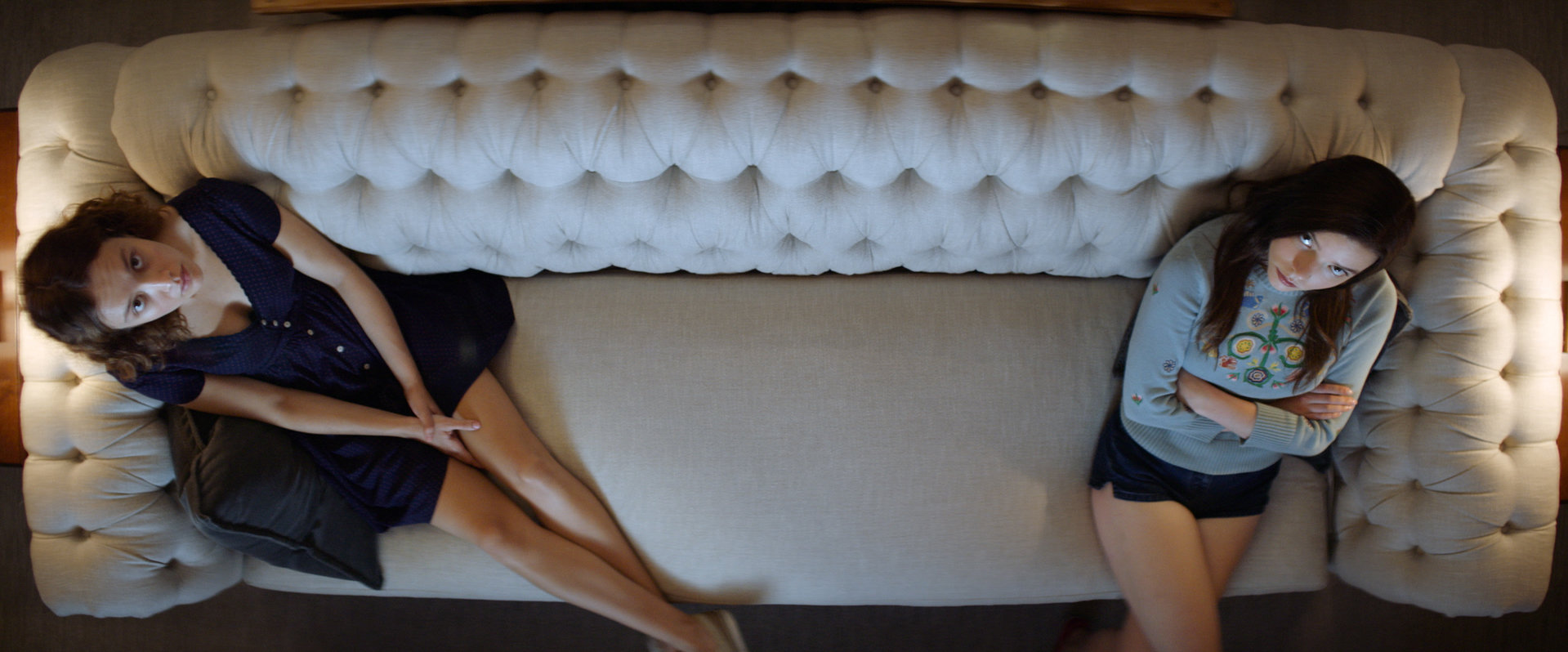Originally intended to take place on a stage, “Thoroughbreds” is a sleek directorial debut. PHOTO CREDIT: The New York Times
Everybody has one movie that they love more than anyone else, claiming it as their own and gatekeeping the title from others, knowing that it’s too good to share.
The movie that fits that bill for me, without a doubt, is Cory Finley’s 2017 comedic dramatic thriller, “Thoroughbreds,” which I suppose I’ll share just this once.
Set in a wealthy neighborhood in suburban Connecticut, “Thoroughbreds” tells the story of two teenage girls, Lily and Amanda (played by Anya Taylor-Joy and Olivia Cooke, respectively) who rekindle their friendship after years spent apart.
As they grow closer and learn new things about each other, they realize just how different they have become over the years, and decide that murdering Lily’s stepfather might benefit both of them for the long haul.
To put it simply, “Thoroughbreds” is a movie that works on every level. From the interesting story, which was originally planned to be a stage play by writer director Cory Finley, to the talented actors hired who bring the distinct and unique characters to life, to the gorgeous cinematography and even things like the set design and hairstyling choices. Everything fits perfectly in place and works together flawlessly, like an elaborate clock with each gear turning in smooth synchronization.
One of the most interesting aspects to the film is, like I mentioned before, the fact that the story was originally intended to take place on the stage and, while film is an entirely different medium than live theatre, the dialogue used to tell this story is still evocative of the experience one would get out of a play.
This is not a film where it feels like writers are forcing characters to talk so they have something to put in between the action sequences. This is a film that loves conversation: it indulges the art of dialogue and, while this is not a terribly deep or philosophical movie, it takes a look at white privilege in a way that mixes comedy with genuinely entertaining and thought provoking monologues. I can find myself quoting this film at random times throughout my day.
What helps bring this rich and purposeful dialogue to life comes in the form of our three main leads; Taylor-Joy (“The Queen’s Gambit,” “Split,” “The VVitch,”) Cooke (“Bates Motel,” “Me and Earl and the Dying Girl,” “Ready Player One,”) and Anton Yelchin (“Green Room,” “Star Trek,” “Only Lovers Left Alive”) perfectly encapsulate the characters they play and are effortlessly captivating and entertaining.
This is also due in large part to the characters that the three actors bring to life. Lily, the rule follower and leading lady who has quite a bit of emotional baggage under the surface, and Amanda, an observant, emotionless and brutally honest friend, planning to “Steve Jobs [her] way through life.” Amanda brings that emotional baggage out from under Lily’s surface and helps her understand it and harness it.
This also marks the final role of the late Yelchin with his performance as Tim, an overcompensating, drug-dealing dishwasher with big plans to become wealthy and powerful. While his character is comedic, the reality is that, at just 27 years old, Yelchin was a talent taken far too soon.
Taylor-Joy and Cooke have especially great chemistry. Even though Cooke plays a character with no emotions, Amanda introduces herself by explaining that she sometimes feels hungry or tired, “but joy, guilt, I really don’t have any of those.” She still manages to infuse a lot of snark and attitude that gives her performance much more range than you might expect. Taylor-Joy also has numerous scenes showcasing how expressive she can be and the mounting tension you see in her expression as she and Amanda plot to kill her stepfather brings out a palpable sense of unease.
If you watch movies for more than their characters and stories, such as the technical side to filmmaking, watching “Thoroughbreds” will be like living through your favorite dream. The sleek and smooth camera movements by cinematographer Lyle Vincent that track characters while they wander throughout Lily’s mansion is as satisfying to watch as it is impressive to imagine how many takes it took for these actors to make their way around the house, through the hallways and up and down staircases, while hitting their mark and delivering their lines without missing a beat.
Even so, the camera work does not take away from the script. When characters talk, the camera stays wide and moves around the actors in a way that adds a fluidity to the scene and lets the actors continue to flex their talents. Multiple scenes in this movie go on uninterrupted by a single cut for anywhere between two and four minutes on end, which makes the comparisons to a stage play feel even more accurate.
If you’re afraid that this movie will be full of blood and gore because it is centered around a murder plot, don’t worry. I won’t spoil the ending, but, like everything else on display in “Thoroughbreds,” it proves how competent and confident Finley is in his directorial decisions. And that confidence makes for one of the most impressive first features I have ever seen. It’s a brisk, fast-paced hour and a half and every minute is gold.




